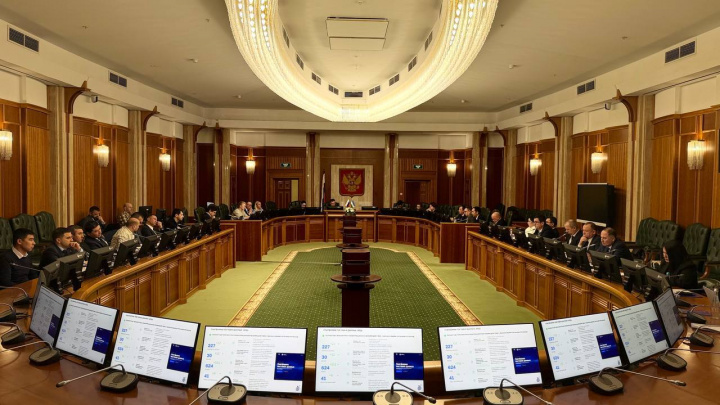Kazakhstani businessmen request mirror measures against Uzbekistan
Entrepreneurs from Kazakhstan request mirror measures against Uzbekistan.
Senator Dauren Adilbekov, during the parliamentary hearing, mentioned the main problems Kazakhstani businessmen facing today, LS reported.
“Fiscal policy has a significant impact on the development dynamics of small and medium-sized businesses. To give an example of one entrepreneur, in his view excise taxes imposed on imported goods are a barrier to the growth of Kazakh exports to neighboring countries. Today, 96 items are subject to excise taxes ranging from 5% to 50% of the customs value. Kazakhstan, however, does not impose similar excise taxes on goods from Uzbekistan,” he said.
At the same time, when Kazakh producers export to Uzbekistan, they pay 15-percent VAT, whereas in Kazakhstan the VAT rate is 12 percent, the deputy noted.
“Business representatives raise the issue of establishing the same measures for goods imported from Uzbekistan or the possibility of reimbursing Kazakh exporters for the costs of excise rates when exporting to Uzbekistan. The country can also promote the development of its external economic activities by facilitating the registration of suppliers by integrating the CT-KZ portal (ST-1 Form Certificates of Origin (for export) and ST-KZ (for internal circulation)) with the public procurement portal and industrial certificate. Today, according to the information of business representatives, this procedure takes from 20 to 30 days,” he noted.
Another problem, according to Adilbekov, is cumbersome tax reporting and heavy workload.
“Today business provides 639 types of reports – financial, tax, statistical. Of course, this cumbersome system is a problem for entrepreneurs. Tax reporting is complex to be widely understood. This leads to tax errors, fines and penalties. Even patent and simplified taxation systems require business entities to increase the staff and include an accountant or tax specialist,” he explained.
In general, the modern structure of the tax system is inflexible and “flat”, the deputy says.
“Tax reporting should therefore be reduced and facilitated. Very relevant is the transition to payment in electronic format using, for example, a smartphone,” he concluded.
According to the publication, the number of loans for small and medium-sized businesses in Kazakhstan declined by 22 percent over three years. On this basis, the people’s representatives demanded that the fines for violating quarantine restrictions be reduced by 50%.
Earlier, President Kassym-Jomart Tokayev had stressed that illegal interference with business activities would be considered a serious crime.
Related News

19:30 / 02.03.2026
Uzbekistan’s GDP projected to grow by 7–7.2% in Q1 2026

17:38 / 28.02.2026
Direct Tashkent – Atyrau flights to begin in late March

15:48 / 27.02.2026
Uzbekistan zero rates VAT at Termez trade hub to boost exports

12:04 / 27.02.2026




